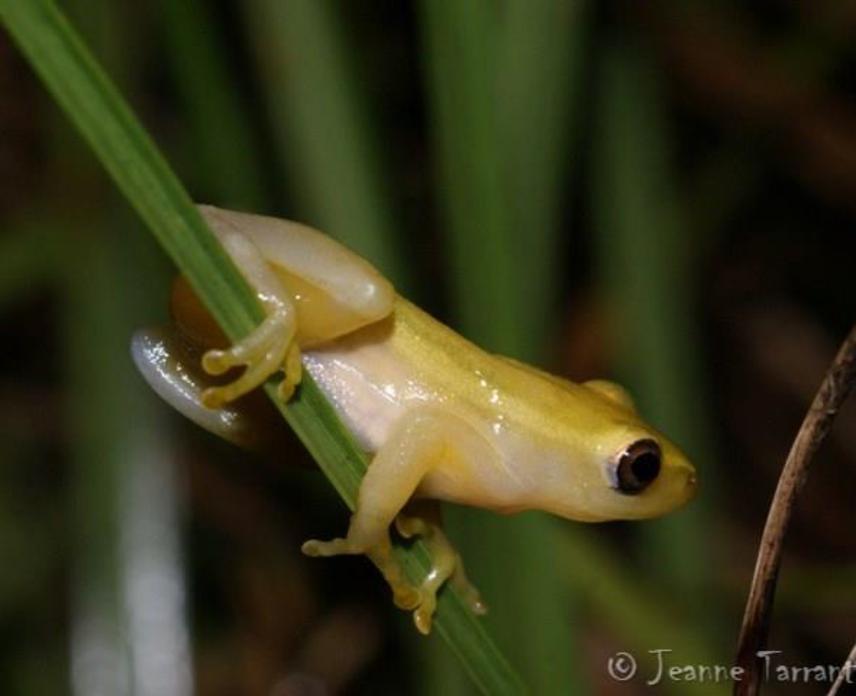Jiba Magwaza
Pickersgill's Reed Frog (Hyperolius pickersgilli) is a Critically Endangered species known only from a very limited and fragmented range of coastal wetland habitat in the Province of KwaZulu-Natal, South Africa, an area high in biodiversity but also subject to high levels of anthropogenic transformation. This project will make comparisons between three relatively degraded, unprotected sites with a bench-mark site that is well-managed.

Pickersgill's Reed Frog Fairbreeze Wetland.
Pickersgill's Reed Frog (Hyperolius pickersgilli) is a Critically Endangered species known only from a very limited and fragmented range of coastal wetland habitat in the Province of KwaZulu-Natal, South Africa, an area high in biodiversity but also subject to high levels of anthropogenic transformation. Most of its sites occur outside of protected areas and without proactive conservation measures therefore protection of the species and management of remaining unprotected sites is critical. Monitoring will help with better understanding of the population dynamics of Pickersgill’s Reed Frog through implementation of monitoring four sites in the greater Durban area at which management interventions are being implemented through a Natural Resource Management grant (primarily focused on alien plant removal).
This project will make comparisons between three relatively degraded, unprotected sites with a bench-mark site that is well-managed. The degraded sites will be cleared of alien vegetation and we will assess changes in population dynamics and wetland health during this process of alien plant control and rehabilitation. This work will assess the effectiveness of management interventions aimed at mitigating one of the major threats facing H. pickersgilli, namely habitat loss through invasive alien vegetation. Development of educational and awareness campaigns is vital to improving public knowledge about Pickersgill’s Reed Frog and the importance of its wetland habitat. Through this project, we aim to help schools and communities to understand the importance of the conservation of amphibians in general and of their wetland habitat. Furthermore, this project will also look at the effectiveness of empowering green livelihoods for communities living close to the wetland sites.